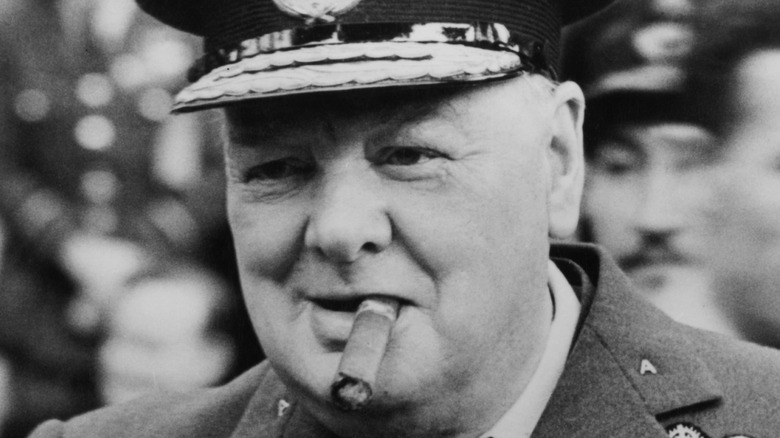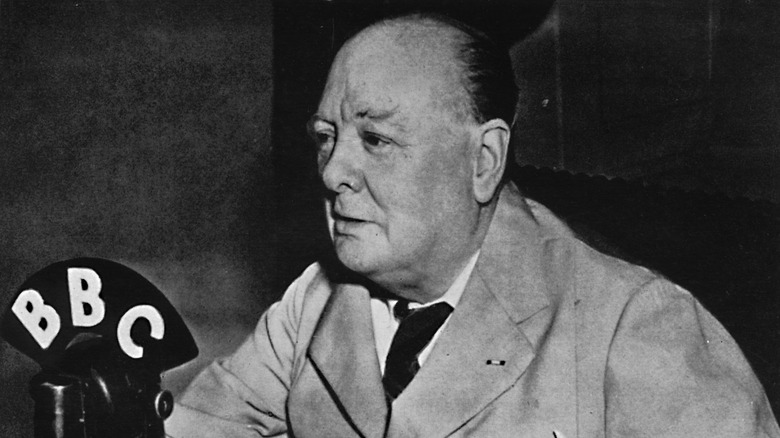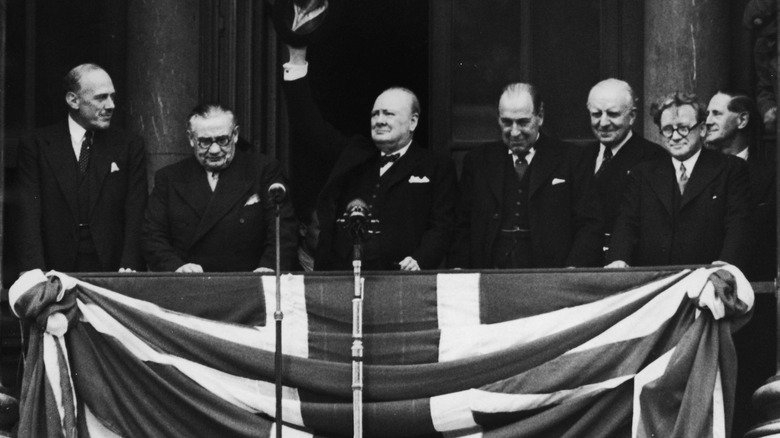Is The Darkest Hour Film Historically Accurate?
Joe Wright's 2017 film, "Darkest Hour," details Winston Churchill's beginnings as Prime Minister of the United Kingdom and his refusal to make a peace treaty with Nazi Germany in 1940. The film was nominated for Best Motion Picture of the Year and Gary Oldman won the Academy Award for Best Actor for his portrayal of Churchill (via Esquire), but history buffs in the audience may not have nominated the film for such high acclaims if they were judging it on its historical accuracy.
Directors have to strike a balance between keeping the story Hollywood-interesting and adapting it to the modern-day, without losing the story's essence and historical accuracy. This was particularly difficult for Wright with this film because he had to portray Churchill's decision to fight against the Germans as a choice, which, according to Slate, is difficult for many of us today to understand, considering what we know from the fallout of World War II.
Fact versus fiction
In the film, one of Churchill's critics calls him a "drunkard" and he nearly always carries a Scotch in hand. As British Empire historian John Broich writes in Slate, Churchill wasn't a drunkard in real life, but he did often write about having a "watered down" Scotch. He was also a professional writer (via Britannica), which is accurately portrayed in the film through the amount of time Churchill spends "sweating over words," according to Broich.
Another thing Wright got right in the film was portraying Churchill as an emotional man, something he was condoned for by other Members of Parliament (via Slate). At the same time, Churchill was backed largely by the Labour Party and leftist media and was not as big of an underdog as he was portrayed to be in the film, Churchill biographer Ashley Jackson told the BBC. At times, Churchill is depicted as bullish and confident, but according to Jackson, he sometimes doubted himself and actually considered seeking terms with Hitler at one point.
An imaginary train ride
In "Darkest Hour," Churchill takes a ride on the public tube system, where fellow riders of the Underground give him a rallying cry that confirms his decision to stand his ground against Hitler. But it's "impossible to know" whether the public would have rather voted to make peace with the Germans in this moment, Broich wrote in Slate. Also, Churchill wasn't the kind of person to look to random strangers for words of affirmation; he was a leader, according to Jackson via the BBC.
Regardless, Churchill would go on to tell the Commons "we will never surrender," in the movie after the restored confidence boost from his Underground speech. The debate that followed in the War Cabinet in the film is also unrealistic, per Broich, and the shouting matches among diplomats were most likely a Hollywood dramatization. In the film, Churchill often meets with staff in underground bunkers, which likely didn't happen at this time as bunkers weren't used until bombings started with the Battle of Britain, according to Jackson. Although to Wright's credit, the smokey, low-ceiling atmosphere did add to the "pressure cooker" tension leading up to the Battle of Dunkirk, Jackson said.


